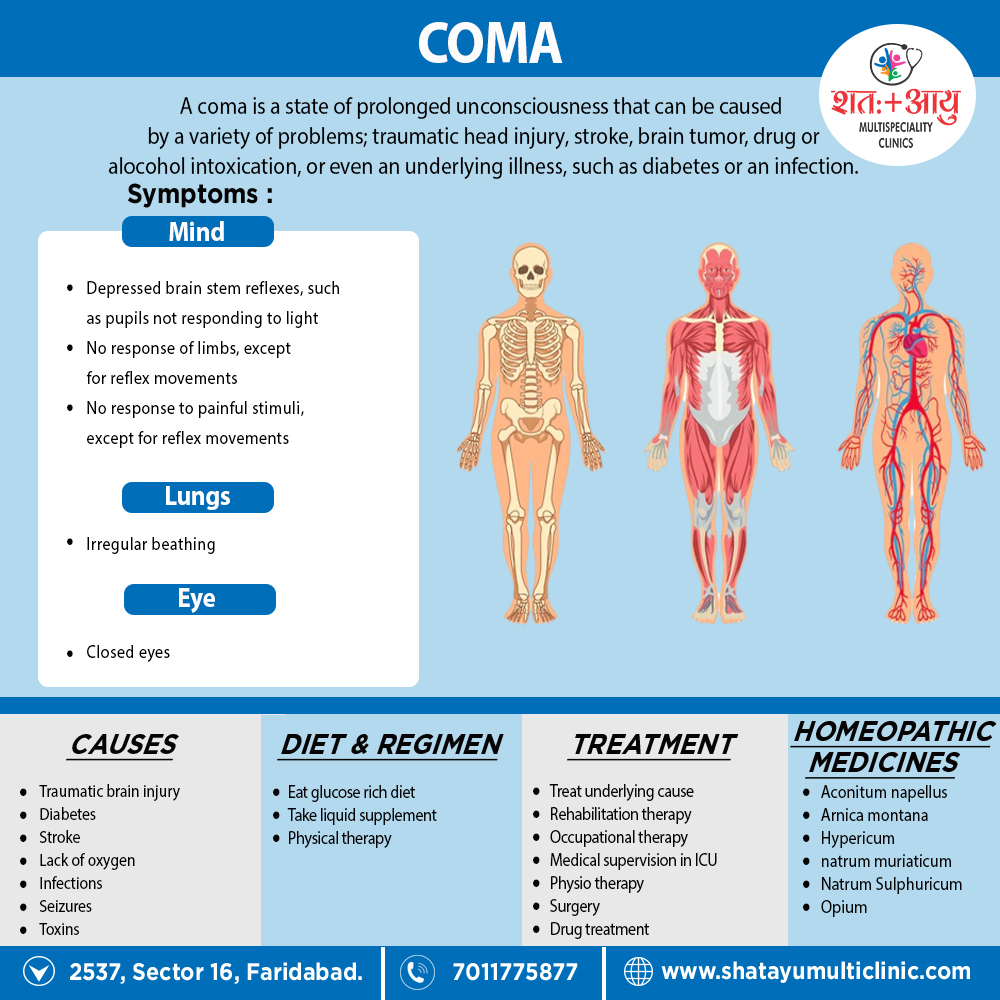Definition:
A coma is a state of prolonged unconsciousness that can be caused by a variety of problems; traumatic head injury, stroke, brain tumor, drug or alcohol intoxication, or even an underlying illness, such as diabetes or an infection. [1]

A coma is a state of prolonged unconsciousness that can be caused by a variety of problems; traumatic head injury, stroke, brain tumor, drug or alcohol intoxication, or even an underlying illness, such as diabetes or an infection. [1]
The signs and symptoms of a coma commonly i.e.:
Before entering a coma, a person with worsening hypoglycemia (low blood sugar), or hypercapnia (higher blood CO2 levels), for example, will first experience mild agitation.
Without treatment, their ability to think clearly will gradually decrease.
Finally, they will lose consciousness. [2]
Many types of problems can cause coma. Some examples are:
A medical and recent history, blood tests, physical tests, also imaging scans can help find out the cause of a coma, also this helps decide which treatment to apply.
Friends, family, police, and witnesses, if appropriate, may be asked:
These will be taken to determine i.e.:
This can check for any infection or disorder of the CNS.
The doctor inserts a needle into the patient’s spinal canal, measures pressure, also extracts fluid to send for tests.
Glasgow Coma Scale |
|
Eye Opening |
|
| Spontaneous | 4 |
| To loud voice | 3 |
| To pain | 2 |
| None | 1 |
Verbal Response |
|
| Oriented | 5 |
| Confused, Disoriented | 4 |
| Inappropriate words | 3 |
| Incomprehensible words | 2 |
| None | 1 |
Motor Response |
|
| Obeys commands | 6 |
| Localizes pain | 5 |
| Withdraws from pain | 4 |
| Abnormal flexion posturing | 3 |
| Extensor posturing | 2 |
| None | 1 |
[4]
The following remedies can be valuable in many of those suffering from the long-term consequences of head injuries.
A coma is a state of prolonged unconsciousness that can be caused by a variety of problems; traumatic head injury, stroke, brain tumor, drug or alcohol intoxication, or even an underlying illness, such as diabetes or an infection.
References: